Even children ponder that which is unknown such as is there a God?....and "where do we go after we die?" Why is it that some people have an incredible fear over dying and others seem to embrace it?
One good starting point may be the near-death experiences. They used to be rare, but they have become much more common ever since the development of modern cardiac resuscitation methods. The medical community has been somewhat reluctant to address the phenomenon of NDEs, and grant money for research has been
scarce.
Could this be because near death experiences shed some light that could end the debate over God and after life existence?
According to the Barna Research Group, the vast majority of Americans believe that there is life after death, and that people do have a soul, and that Heaven and Hell does exist. The existence of God is the widely embraced viewpoint with 8 out of 10 Americans (81 percent%) believing in an afterlife of some sort.
In most religions the belief of the soul’s existence in an afterlife is present. Hinduism and Buddhism and Wicca believe in reincarnation, where a person's conduct during their lifetime warrant a reward or a demotion in their future life.
9% of people would side with the Agnostic position that heaven or hell may or may not exist, while just one out of every ten adults (10%) contend that there is no afterlife after one dies on earth. Philosophies such as humanism, empiricism, also hold a belief that is no afterlife.
Dr Susan Blackmore
Dr Susan Blackmore, a psychologist, sides with many
Atheistic and Agnostic points of view where near death experiences are simple to
explain. She states that simply "the brain is building a
different view of itself" when a person is seeing Near Death events. She
believes that a person's brain is capable of compiling images that create the
"Out of Body" experiences. She states that the brain is capable of
recreating an illusion of an out of body experience, such as a person who is
seeing their body from the vantage point of the ceiling, and looking at their
dead body.
Many claim Susan Blackmore's scientific proof that NDE is an artifact of brain chemistry are to be in error. NDEs have many common elements which suggests an experience outside the body than produced within the brain.
Nancy Evans Bush
Nancy Evans Bush, a NDEr with the International Association for Near-Death
Studies, who said: "There is no human experience of any description that
can't simply be reduced to a biological process, but that in no way offsets the
meaning those experiences have for us - whether it's falling in love, or
grieving, or having a baby."
Greg Stone
Greg Stone author of Under the Tree, gives an in depth Critique of Susan Blackmore's Dying Brain Hypothesis only to find her claim doesn't prove her
hypothesis. In fact, he finds that she doesn't give any evidence for
nonexistence of the spirit, but in fact does the opposite, proves that the
spirit can live separate than the mind.
What is A Near Death Experience?
According to Wikipedia A near-death experience (NDE), refers to a broad range of personal experiences associated with an impending death, encompassing multiple sensations
including detachment from their body; feelings of
levitation; extreme fear; total serenity, security, or warmth; the experience of
absolute dissolution; and the presence of a light, which some people interpret
as a deity.According to Jeff Long with (International Association for Death Studies), approximately 12-15 million people have had a near death experience.
These substantial testimonies leave many speculators and NDE individuals confused and drawing informed conclusions about the experience because there are so many different experiences as NDE's can occur before unconsciousness, during unconsciousness, during recovery, after recovery and after clinical death.
Speculations that brain cells can live on after clinical death have been another hot theory which has been debated as a possible explanation for NDE's. It is known that a lack of oxygen to the brain causes brain cells to die, being that they are the most sensitive cells in the body.
"Though I accept that some simple or low-levelled
cognitive activity comparable to associative dreaming might still be
accounted for by residual cortical processes, this is a far cry from believing
that such processes might actually explain the level of thought, memory, emotion
and perception shown in NDEs." - Dr Peter Fenwick
Taking into account the vast amount of near death testimonies, we would like to focus this discussion on primarily clinical death experiences testify to Near Death Experience.
With the heated debate that many believe which is a result of an artificial stimulus produced by drugs or a lack of oxygen or the result of complex functions of the brain, these all can be eliminated as possible explanations if we focus on just clinical death experiences.
I write from a Christian perspective, because I have found overwhelming evidence for Christ, compared to all other faiths that exist. While near death experiences may be up for debate, the Near Death Experience can be yet another rock added to an overwhelming mountain of evidence for Christ.
While Near Death Experiences may not be the very best evidence for Christ, we do find many similarities within the experiences that do point towards him. Many atheists proclaim that near death experiences cannot be tested, and in many respects many spiritual encounters cannot be tested. There are many intances where people can experience a supernatural experience before death which may not be the same classification as true Near Death Experience. A great majority of studies from medical doctors conclude that clinical death results in deeper and richer after death experiences.

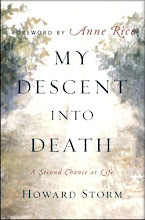




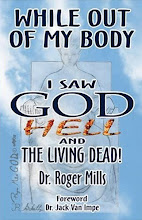

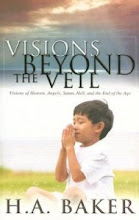






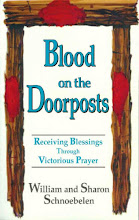


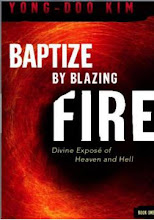







No comments:
Post a Comment